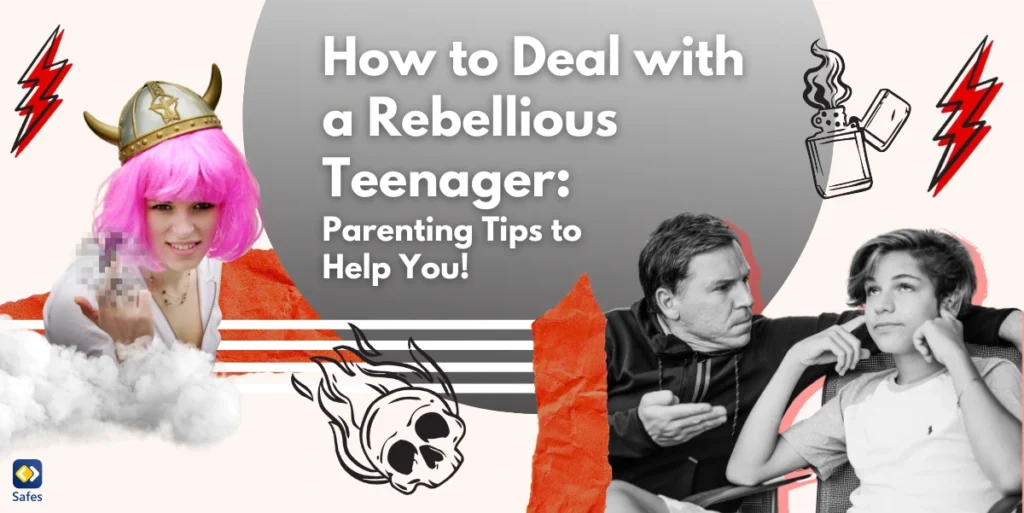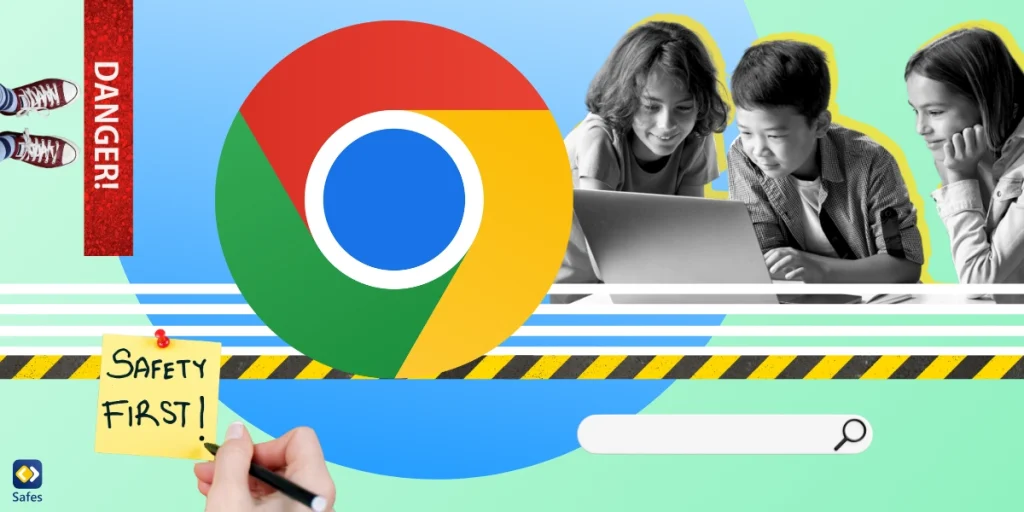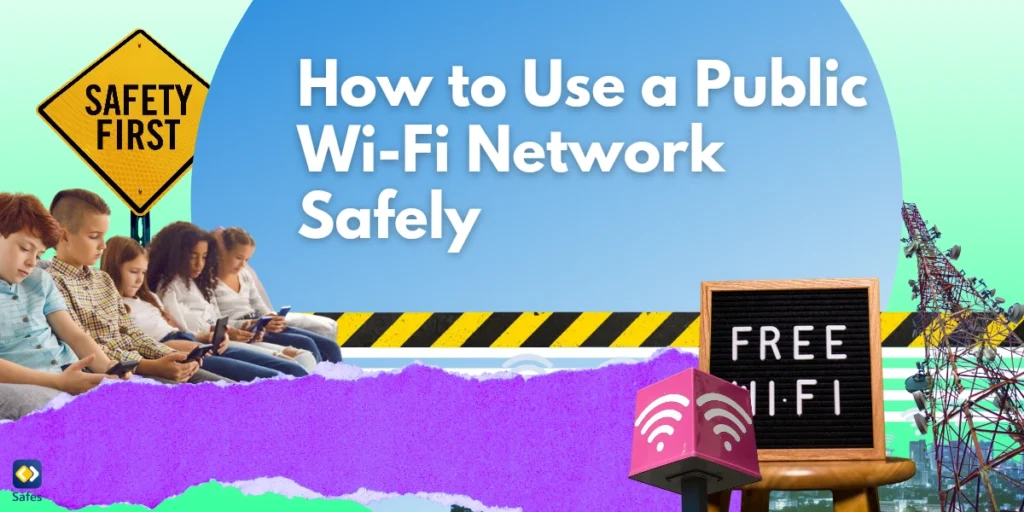Are you a parent of a teenager? If so, you know just how challenging this stage of life can be and you’re probably wondering about how to deal with a rebellious teenager. From dealing with attitude problems and emotional outbursts to navigating the tricky years of puberty, it can be a difficult time for the whole family. In this blog post, we’ll explore some tips and strategies for managing rebellious teenagers and helping them grow into responsible adults. We’ll discuss how to communicate effectively, set boundaries, and find positive outlets for teenage energy. Whether you’re a new parent or an experienced one, this post will provide useful advice for dealing with your rebellious teenager.
Download and Start Your Free Trial of the Safes Parental Control App
Rebellious Teenager, What Does It Mean?
A rebellious teenager is a young person who demonstrates a persistent pattern of disobedient, defiant, and disruptive behavior, usually in response to perceived restrictions on their independence or autonomy. This type of behavior can include breaking rules, skipping school, drug or alcohol abuse, disrespect towards authority figures, engaging in risky behavior, and generally acting out against social norms or expectations.
In conclusion, a rebellious teenager is a young person who challenges authority and societal norms, often in response to their own individual needs, desires, and personal struggles. It’s crucial to address this behavior with care, understanding, and a supportive approach to help teenagers navigate through this challenging phase of their life.
Why Do Teens Rebel?
Teens may rebel for a variety of reasons, which can be complex and multifaceted. Here are four factors that may contribute to teenage rebellion:
Developmental Changes
Adolescence is a time of significant physical, emotional, and cognitive changes. Teens are developing their own identities, trying to figure out who they are, what they value, and what they want to achieve. This process can be challenging and frustrating, as they navigate new social, academic, and personal challenges. Rebellion can be one way to express their individuality and assert their independence.
Exhibiting immaturity is also due to the underdevelopment of the brain in the teenage years. The brain doesn’t fully develop before 25 years. Plus, one of the last regions in the brain to develop completely is the prefrontal cortex. The prefrontal cortex is located at the front section of the brain, behind the forehead. It’s responsible for a person’s decision-making as well as their social and personal behaviors. With an incompletely developed prefrontal cortex, a teenager lacks the necessary skills to make sensible choices.
Social and Cultural Influences
Social and cultural factors can also contribute to teenage rebellion. Peer pressure can influence teens to engage in risky behavior, as they try to fit in or gain acceptance from their peers. Social media and pop culture can also have a significant impact on teens, influencing their values, beliefs, and behaviors. In some cases, rebellion may be a way to challenge societal norms or expectations.
Family Dynamics
Family dynamics can also play a role in teenage rebellion. Teens may rebel against their parents or other authority figures if they feel their needs are not being met or if they perceive their parents as overly controlling or restrictive. Conflict within the family, such as divorce or remarriage, can also lead to rebellion, as teens try to cope with the stress and changes in their home environment.
Psychological Factors
Finally, psychological factors can contribute to teenage rebellion. Teens who struggle with mental health issues, such as depression or anxiety, may rebel as a way to cope with their emotions or distract themselves from their problems. Substance abuse or addiction can also lead to rebellion, as teens seek out new experiences or use drugs or alcohol to self-medicate.

How to Handle a Rebellious Teenager?
Missing curfew, underage drinking, and smoking, are, among others, inappropriate behaviors a teenager can commit. What to do with a rebellious teenager? Here are some tips on how to deal with teenage attitudes.
Develop a Positive Relationship
The most important step in dealing with a rebellious teenager is developing a positive relationship with them. This can be done by spending quality time together and engaging in activities that your teen enjoys. This can help build trust and create an environment where you can have conversations about difficult topics more easily. Making time to listen to your teenager without judging them is key to developing a positive relationship. Read about Things Teenagers Know That Parents Should Learn from Them to help you understand your teenager more.
Set Clear and Consistent Rules
Setting clear and consistent rules can help a rebellious teenager understand the boundaries that need to be respected. These rules should be discussed openly with the teen so that they understand why the rules are in place. It’s important to ensure that these rules are consistently enforced, so that the teen can learn to trust that their boundaries will not change.
Parental control apps can be a useful tool in dealing with a rebellious teenager. These apps allow parents to monitor their child’s online activity, set boundaries on what content is allowed, and even set time limits for how long their child can use certain apps or websites. This can help create a safer online environment for the teen, while also giving parents the ability to keep tabs on their child’s online activity. We recommend using Safes as it’s easy to use and can be installed on all platforms, such as iOS, Android, and Windows. Sign up for a free trial today to experience how Safes can help you manage your child’s digital safety across all their devices.
Listen to Their Perspective
When dealing with a rebellious teenager, it’s important to listen to their perspective and validate their feelings. This can build trust and help teens open up to you. Listening to their perspective can also help to uncover the underlying causes of their rebellion and provide insight into how to best address it. To understand them better, focus on putting yourself in their shoes and try to see things with their eyes.
Offer Consequences for Negative Behavior
Offering consequences for negative behavior can help a rebellious teenager understand the consequences of their actions. These consequences should be discussed openly and should be consistent and appropriate for the situation. It’s important to ensure that these consequences are applied fairly and consistently, so that the teen can learn to trust that their actions will have consequences. Here are 5 Approaches To Discipline A Child.
Encourage Positive Behaviors
How to deal with a rebellious teenage girl or boy? Encouraging positive behaviors is a great way to help a rebellious teenager understand the benefits of good behavior. In fact, De Montfort University Leicester (DMU) researchers found out that kids who get their parents’ praise at least five times a day are more well-behaved, composed, and attentive than kids who don’t. This can be done by rewarding them with praise and privileges when they display positive behaviors. It’s important to ensure that these rewards are given consistently, so that the teen can learn to trust that their good behavior will be recognized and rewarded.
Conclusion
It’s worth noting that not all teens rebel, and rebellion can take many forms. Some teens may rebel by breaking rules or engaging in risky behavior, while others may rebel by withdrawing from their families or engaging in more subtle forms of resistance. Understanding the underlying reasons for teenage rebellion can help parents and other adults respond in a supportive and constructive way, rather than simply punishing or dismissing their behavior. The above tips on how to deal with a rebellious teenager can help you handle the situation.
Your Child’s Online Safety Starts Here
Every parent today needs a solution to manage screen time and keep their child safe online.
Without the right tools, digital risks and excessive screen time can impact children's well-being. Safes helps parents set healthy boundaries, monitor activity, and protect kids from online dangers—all with an easy-to-use app.
Take control of your child’s digital world. Learn more about Safes or download the app to start your free trial today!




